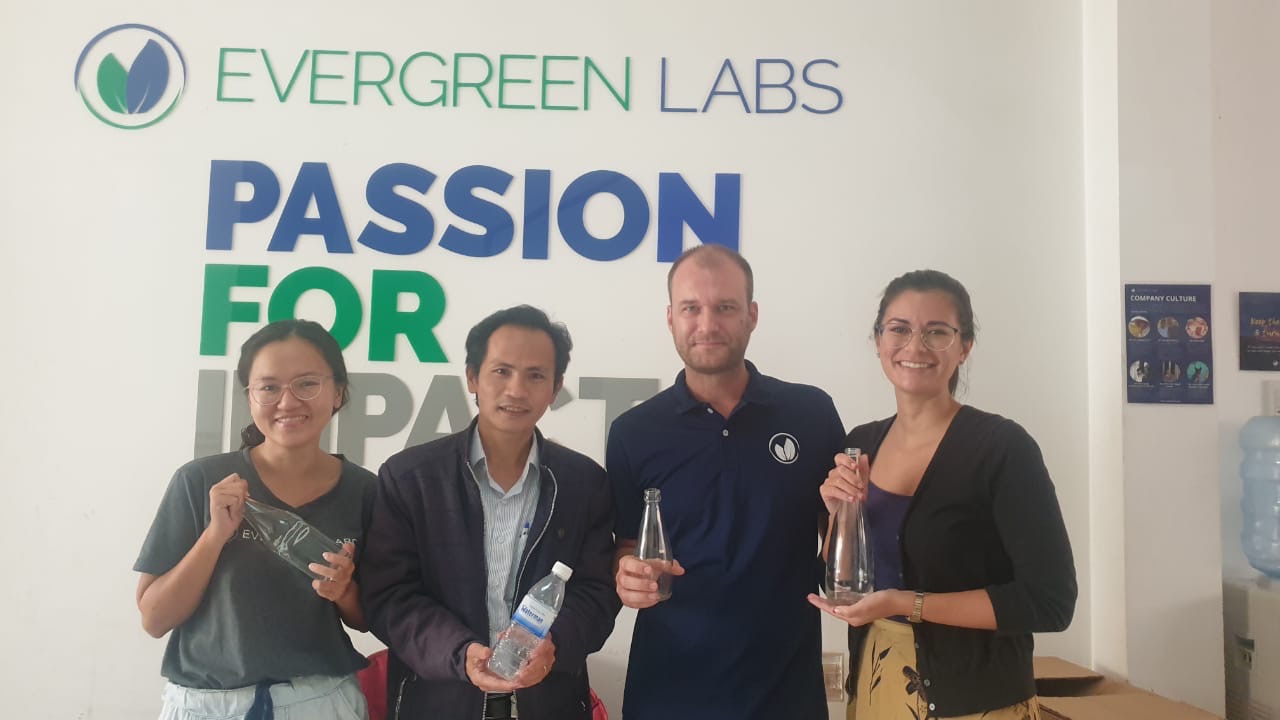By Dr. Kasia Weina, Director & Founding Partner and Linh Pham, Analyst, Evergreen Labs –
Understanding where your waste goes after consumption is one way of being a responsible consumer, however, considering whether or not to use plastics in your daily life is an even better option. In the previous article, I highlighted what is called “downstream” waste value chains including recycling streams and processing.
However, the best way to become waste-free is to not consume it in the first place.
But that is definitely easier said than done.
The Plastics Dilemma
Finding alternatives to plastics has been spotlighted as a key priority area for various organizations, funds, foundations, and facilitators in the waste ecosystem. But this is not an easy feat, as plastics have become intertwined with our everyday lives more than you can imagine.
From logistics and transport to food consumption and health, plastics are providing us with improved lives. They keep us hygienic and sterile, which during the COVID-19 pandemic, disposable health equipment and supplies are vital to tackling the pandemic. Furthermore, plastics allow us to store food longer, maintain goods when shipped and ultimately provide globalization to take place. This, of course, is at a deadly cost to the environment.
Upstream Innovations
Finding replacements and alternatives to plastics, or “upstream” innovations will be the key to successful management of our immense plastic waste problem. Both upstream and downstream solutions must tackle the waste issue from both ends for it to be sustainable.
Upstream solutions can be comprised of three key strategies, as nicely described by the Ellen MacArthur Foundation:
- Elimination: Elimination refers to either eliminating packaging or a packaging component, or creating packaging with edible and dissolvable materials. Elimination includes direct elimination that concerns non-essential packaging, and innovative elimination that involves packaging with necessary functions.
- Reuse: Reuse means to create reusable packaging that can be used multiple times after being kept intact and washed entirely. There are four business-to-consumer (B2C) reuse models: refill at home, refill on the go, return from home, and return on the go. Business-to-business models also exist in different forms and scales.
- Material circulation: Material circulation involves choosing recyclable and/or compostable packaging, and/or substituting plastic packaging with non-plastic packaging that can be either recycled or composted.
Case Studies of Upstream Solutions in Vietnam
Fortunately, with the rise of environmental consciousness in Vietnam in these recent years, many enterprises have adopted one or more upstream solutions in their products, services, and overall operations.
Three case studies in Vietnam reflecting each of the three upstream strategies are highlighted below.
1). Plastic tear-offs permanently off water bottles
Significant case studies of direct elimination in Vietnam involve two conglomerates: Nestlé and Coca-Cola. In May 2018, a member of Nestlé Waters, La Vie Vietnam, an÷nounced the removal of all plastic seals on their 350ml bottles, the very first step in the company’s long-term environmental protection initiative.
Over a year later, La Vie Vietnam eventually ceased the use of plastic seals in all mineral water products. Within the same month, Coca-Cola Vietnam followed in Nestlé’s footsteps by removing all plastic tear-offs on its Dasani water bottles.
Both companies declared that the elimination of plastic seals would reduce the amount of plastic waste that they generate, and would absolutely not affect water quality.
While this isn’t enough to completely mitigate plastic waste, it is a step in the right direction.
2). Return your water bottles on the go with Glassia
Opening its door in March 2021, Glassia, Evergreen Labs’ latest social franchise, provides purified water in 100% reusable and refillable glass bottles. Glassia enables the circular use of glass bottles, which allows for return and reuse of intact glass bottles up between 30-50 times before bottle-recycling occurs, and at the same cost of disposable plastic bottles.
It also completely replaces single-use plastic packaging with recyclable materials – a material circulation solution – and significantly reduces CO₂ emitted from transportation through its decentralized production model.
With over 1,000,000 water bottles being consumed every minute globally, hyperlocal solutions like this will transform the consumption of bottled water all together.
3). The uprising of eco-friendly packaging
2019 witnessed an upsurge in the use of eco-friendly packages and products over traditional plastics in Vietnam. For example, banana leaves have replaced plastic vegetables wraps, firstly, in environmentally-conscious small-scale stores, then to several supermarkets across the country.
Many food & beverages facilities have also shifted to recyclable or compostable packaging and packaging components, such as bagasse containers, paper cup lids, and biodegradable plastic bags. This trend has also influenced plastics companies to invest in research to develop recyclable or compostable packaging, such as An Phat Plastic and Green Environment JSC’s high-quality microbial bags and degradable utensils.
However, full in-depth research regarding the compostability and degradability of these products are still under investigation.
For more information – https://evergreenlabs.org
All views and opinions expressed on this site are those of the individual authors and comments on this site are the sole responsibility of the individual contributor.


